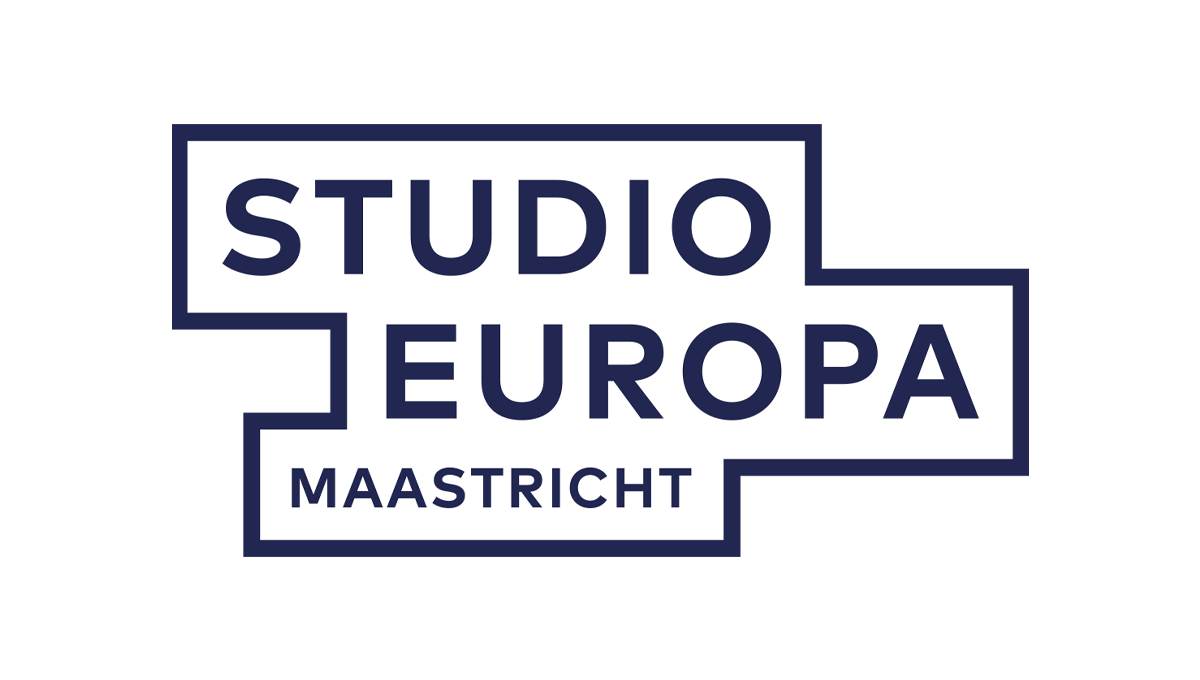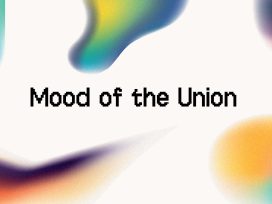Unity or else: The EU after the elections
As the EU confronts external challenges – including the war in Ukraine, rising geopolitical tensions, and potential shifts in US policy – will its internal politics align to meet these crises, or will the growing influence of the far right impede progress on the continent’s most pressing issues?
The recent European parliamentary elections took place against the backdrop of widespread expectations by experts and the general public alike of a rightwing surge. The results both confirmed and confounded these expectations. This will have crucial consequences for the EU in the months and years ahead.
A pessimistic reading of the European political predicament would emphasise the rise of the right, especially in Europe’s largest countries. In France, Marine Le Pen’s Rassemblement National (National Rally, RN) topped the polls, finishing with a 17-point lead over President Emmanuel Macron’s centrists. Macron responded by calling snap parliamentary elections, opening the way for a possible cohabitation with a far-right government for the first time.
In the first round of that legislative election, the RN came first once again, bringing the spectre of that cohabitation closer than ever. The party was able to capitalise on a variety of factors, including the widespread view that immigration and integration policies have failed, the cost-of-living crisis, the weakening centre left and centre right, and Macron’s inability to construct a durable liberal-centrist majority able to stave off the rise of the far right and far left.
Were it not for the centripetal dynamics inherent in the two-round electoral system in France and the establishment of a Republican front spanning from the liberal centre to the populist left, the nightmare of a far-right government in France could have become a reality. A caretaker government remains in office and a new executive is yet to be formed.

European Parliament Plenary session July 2024. Image: European Parliament / Source: Wikimedia Commons
It remains to be seen whether the new government, when it emerges, will succeed in tackling France’s deepening socio-economic woes. All this will weigh heavily on the run-up to the presidential election in 2027. It is too early to tell whether the right’s failure to gain control of the government will galvanise or weaken Marine Le Pen’s race for the presidency.
As a result, there is a real risk that the two candidates facing each other in the second round of the next presidential election may both come from the political extremes (the far left and far right), eliminating the moderating effect that the second electoral round has normally had on the final outcome.
Were this to happen, the European project would be in mortal danger, to use Macron’s own words. Whereas the EU survived and to an extent even strengthened after the UK left, it is unlikely to weather the institutional, legislative and regulatory regression championed by the current iteration of Eurosceptics, with players like Marine le Pen in the lead.
In Germany, all three parties of the governing coalition took a beating, with the far-right Alternative für Deutschland (Alternative for Germany, AfD) confidently asserting itself as the second-largest party in opposition after the Christian Democrats. The populist Sahra Wagenknecht’s new cross-spectrum BSW party also made a splash on its arrival in the German political spectrum.
While we are unlikely to see the far right or the populist left rising to power at federal level, the regional picture looks very different. The electoral map of Germany is indeed remarkable: the east-west divide is as deep as ever, with the AfD tightening its grip on eastern Germany, even as Wagenknecht rises in the polls. The cordon sanitaire, whereby parties from the centre left to the centre right coalesce when necessary to keep the extremes out of power, could crack in some German regions in the months and years ahead.
All this takes place against the backdrop of Germany’s economic woes. The energy decoupling from Russia, the growing tensions between the EU and China, the war in Ukraine and the spectre of Donald Trump’ re-election as US president, with its potentially catastrophic consequences for the defence of Europe, have turned Germany’s strategic and economic model on its head, with a clear new vision yet to emerge.
In Italy, the far right also topped the polls: Giorgia Meloni’s Fratelli d’Italia (Brothers of Italy, FdI) was amongst the few governing parties (alongside Donald Tusk’s Civic Platform in Poland) that increased its share of the vote compared to the national elections that brought her to power. This led the Italian prime minister to show a different face to the moderate pro-EU one she had put on after entering office.
In the European Council, Meloni abstained from nominating Ursula von der Leyen for a second term, while voting against the appointments of Antonio Costa and Kaja Kallas as European Council president and High Representative of the EU for foreign affairs and security policy respectively. When it came to the vote in the European Parliament, Meloni’s FdI voted against von der Leyen, surprising many who had bought into her shift towards moderation.
At EU level, the relative strengthening of the far right triggered a new dynamic. Scenting the prospect of greater influence at European level, the Eurosceptic far right has sought to reorganise itself by forming a new group. Patriots for Europe is spearheaded by Viktor Orbán’s Fidesz, which had been nudged out of the centre right European People’s Party in 2021. Given weight by the inclusion of France’s RN, the Patriots group is now the third largest in the European Parliament. In fourth place (just one seat ahead of the liberal Renew), are the far-right European Conservatives and Reformists, bolstered by the strong showing of Meloni’s FdI. Even further to the right, yet significantly smaller, is the Europe of Sovereign Nations, which hinges on the AfD.
By marginally increasing their seats and especially by organising themselves in groups, thus reducing drastically the number of unaffiliated MEPs compared to the previous legislature, the far-right parties’ influence on the EU legislative agenda is likely to increase. This is true especially on issues like agriculture, energy, climate and migration, where the far right could form a common front with (the part of) the European People’s Party also keen to slow down the EU’s sustainability agenda and toughen up even further on migration.
Especially in the event of Donald Trump’s victory in the US presidential election, we could also see a growing convergence between the centre right and far right on traditional security questions, first and foremost Ukraine. Today, what divides the centre right from the far right are their differing attitudes towards Vladimir Putin’s Russia and NATO. Were Trump to return to the White House and Washington to abandon Ukraine, this divide would soften.
Add to this the growing contingent of Eurosceptic governments represented in the Council of Ministers and European Council: Hungary, Italy, Slovakia and the Netherlands are all led by Eurosceptic governments from the populist right or left, with Austria possibly soon to follow.
Or: The centre holds
A more optimistic reading of European politics would paint a very different picture. In most European countries and at EU level, there was in fact no rightwing surge In Poland, Tusk affirmed his lead over the hard-right Law and Justice. In the Netherlands, the opposition socialist-green alliance came first, overtaking Geert Wilders’ far-right PVV now in government. In Spain, Sweden, Finland, Denmark, the Czech Republic, and even in Austria and Hungary, the far right underperformed compared to expectations.
In Italy too, while Meloni topped the polls at almost 29 percent, this was lower than Matteo Salvini’s 35 percent in the 2019 European elections. Italy’s contribution to the rightwing surge in the 2024 European Parliament is therefore a net negative. All in all, the far right has made inroads, but this is not a landslide in terms of the number of seats in the European Parliament.
This meant that the ‘governing’ majority in the European Parliament has remained the same, featuring the centre-right European People’s Party, the socialists and the liberals. Like last time around, this risked being insufficient for Ursula von der Leyen to be elected for a second term, forcing her to hunt for additional votes. Von der Leyen had two options – the greens and the conservatives – and to an extent she tried to pursue both.
However, the ECR was at best going to be divided. Whereas some smaller parties had declared their willingness to back the president for a second term, Poland’s Prawo i Sprawiedliwość (Law and Justice, PiS) was always clear about its opposition. Von der Leyen was a major adversary of the Polish far right, given her withholding of EU funds to Poland (and Hungary) on the grounds of the PiS’s rule of law violations, so its opposition to her re-election was a given.
Meloni, emboldened by the election result, played hard to get, but at most would have been able to deliver her own party’s votes. In the end Meloni chose to follow her political-ideological instincts and affinities, rejecting not just von der Leyen (with whom she declaredly has a good personal relationship) but especially the political agenda which the EC president presented to parliament.
By contrast, the greens were amongst the big losers from this election, with their share of seats in the European Parliament falling from 74 to 53. This made them more interested and amenable to compromise than they were last time (when they voted against von der Leyen). Provided the president assured there would be no backtracking on the European Green Deal, which they had fought for in the first place, they signalled their readiness to support her for a second term.
Given the greens’ support, and even factoring-in a high defection rate in the secret ballot, the pro-European majority would have held. There was thus no need for von der Leyen to bend over backwards to please the Eurosceptic Meloni. And indeed, she did not, presenting a fairly ambitious and strongly Europeanist agenda.
Eventually the centre did hold and von der Leyen was re-elected with a comfortable majority built on support from the centre right, the centre-left, the liberals and the greens. Add to this that the European Council president, the Portuguese Antonio Costa, is a pro-European socialist, and the high representative, the Estonian Kaja Kallas, a pro-European liberal, it is clear that pro-European parties have retained a firm grip on EU institutions.
Policy challenges ahead
The policy agenda von der Leyen presented to parliament reflects this. It is based on four major pillars. First, prosperity and competitiveness, with a focus on achieving green growth.
Rather than turning her back on the European Green Deal, the president insisted that the task now at hand was to reach those goals by improving the EU’s competitiveness. She proposed that this could be done through greater integration of the single market (especially in terms of financial markets), less bureaucracy, a competition policy focused on the growth of European companies, and an industrial plan for clean technologies, supported by a dedicated fund. The capital markets union, redubbed as a savings and investment union, is likely to feature prominently on the EU’s policy agenda in the years ahead.
The second priority is defence. There is no hesitation regarding the defence of Ukraine, nor any room for Viktor Orbán’s ‘appeasement missions’. The EU will continue to defend Kyiv – on this von der Leyen was crystal clear. In her policy agenda she embedded this support for Ukraine within the wider ambition to work on a common European defence market, proclaimed her support for increasing European funds for investment, and promoted the idea of a European air shield.
The next Commission will also feature a defence commissioner, a position which could become meaningful if significant fresh funds dedicated to defence are agreed at EU level. These words have been repeated countless times in recent years, but the war in Ukraine and the Trump-Vance ticket in the US presidential election, which could prove victorious in November, might be the ultimate wake-up call that Europe needs.
When I moderated a discussion with JD Vance at the Munich Security Conference last February, it was evident that the Ohio senator, now vice-presidential candidate (let alone his boss Donald Trump), has no interest in European security. Trump and Vance would be more than willing to throw Ukraine under the bus and the rest of Europe with it.
The third – and related – pillar is enlargement. European security requires both European defence and the revitalisation of EU enlargement. The democratisation and Europeanisation of the Western Balkans and the Eastern trio (Ukraine, Moldova and Georgia) are viewed less as acts of altruism towards the candidates than as essential for European security writ large.
The geopolitical logic driving enlargement shone through in von der Leyen’s words, without detracting from acknowledging the need for reforms. This includes reforms in the candidate countries, given the stalling and even backsliding in countries like Georgia. However, it also includes the recognition that the EU itself needs to reform. So much so that von der Leyen explicitly cast her weight behind treaty reform.
Although this is unlikely happen (since it would require unanimity among member states), it is nonetheless significant that the president wanted to emphasise that enlargement and integration can – indeed, must – proceed hand in hand.
Finally, von der Leyen outlined a social and democratic Europe that places the most vulnerable groups at its core: those without affordable housing, women suffering from unequal pay, and young victims of cyberbullying. The Commission president outlined a vision of an EU determined to protect democracy by countering disinformation and making all union funds conditional upon respect for the rule of law. Were the EU to act on issues such as these, which touch the core of citizens lives, it would be a far more integrated union than the one we know today.
Does this mean that plus ça change, plus c’est la même chose in Europe? Does it imply that the EU will proceed and even accelerate on its path towards deeper integration and a commitment to protect liberal democracy, to defend Ukraine and Europe as a whole, to proceed towards a decarbonised future and to promote a green and technological competitive economy?
Alas, this may well not happen. The challenges that Europe faces are huge. War on the European continent, the US’s disengagement from Ukraine and European security, the spiralling climate crisis, the brewing trade war between the US and China, the trampling of international law in the Middle East, and Europe’s tattered reputation in the Global South will top the European policy agenda in the months ahead.
Whatever the political machinations in Europe, the external context will shape the EU’s policy priorities; governments and institutions will not be able to shy away from them. And indeed, the policy agenda presented by Ursula von der Leyen addressed all of these issues in fairly ambitious terms.
But internal political dynamics will make a world of a difference at the practical level. It is one thing to prioritise the defence of Europe by ‘only’ investing in national capacities, and by building on the institutional mechanisms and financial instruments already established at EU level. But is quite another thing to put real money behind European defence (and a European pillar in NATO) in a way that finally manages to break the glass ceiling that has historically prevented Europe from being able to protect itself.
There is a categorical gap between a geo-economic agenda that doubles down on protectionism vis-à-vis China, and one that also invests at the European level on green and digital technologies, while also building a capital markets union that enables companies not just to be born in Europe but to grow and remain in Europe too.
Likewise, enlargement can be pursued by following an exclusively security-based rationale, diluting the EU, or it can be an opportunity to take institutional reforms more seriously, both within the candidate countries and in the EU, on issues like unanimity in decision-making as well as in policy areas like agriculture and cohesion.
Finally, while it is one thing to address the Global South by pursuing mercantilist deals aimed at stopping migration, it is quite another to recommit to international law and significantly increasing climate finance.
The political picture that emerged from the European elections has not prevented the EU from identifying the correct priorities. However, an even marginally more right-leaning and Eurosceptic EU like the one we see today could drastically reduce the level of ambition and complicate the journey towards addressing these priorities.
For instance, it is difficult to see current political dynamics in Europe triggering treaty change, the issue of European defence bonds, or the establishment of a new and meaningful green industrial fund to spearhead the implementation of the Green Deal. Likewise, it is hard to predict any progress in overcoming the fossilised resistance to the establishment of a capital markets union.
This does not mean that the Commission will not try to do all of the above, or that it will not be backed by several member states. But it does not mean that it will garner the critical mass of support necessary to succeed. The odds of doing so in a more nationalistic EU are not high.
The European elections did not lead to the rightwing surge that many feared. But the relief is bittersweet. Emerging from these elections in only a marginally worse position than when we entered them is meagre consolation given the dramatic predicament Europe is in. Unless, of course, the gravity of the external environment, which could worsen exponentially if Trump is re-elected in November, jolts the EU into positive change, as has so often been the case in Europe’s recent history.
Today we can easily predict that the EU’s internal political dynamics are unlikely to push towards greater unity, but also that the crises that may unleash themselves on Europe in the months and years ahead will force just that.
Published 2 August 2024
Original in English
First published by Eurozine
© Nathalie Tocci / Eurozine
PDF/PRINTIn collaboration with
In focal points
Newsletter
Subscribe to know what’s worth thinking about.
Related Articles

The debate between Keynes and Hayek must be between a historically accurate Hayek and a historically accurate Keynes. Only then can the differences – and the common ground – between these two key economists of the mid-20th century be understood.

How do tourists experience life in places that they make unliveable? Discussing overtourism on this episode of the Standard Time talk show with a Mallorcan activist, a Central European architect and an English marketing expert.






